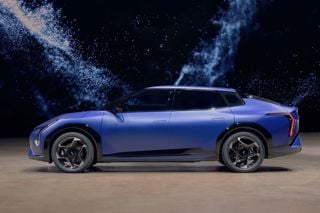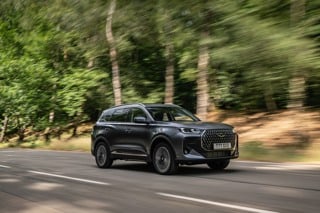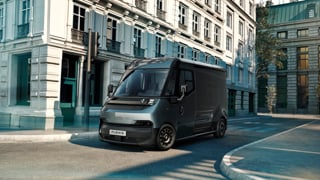Manufacturers are raising discount levels to fleets to encourage uptake of electric vehicles after a strong push in September saw full electric take its largest ever share of registrations, at 20.5%.
With year-to-date electric sales close to 18%, the ZEV Mandate target of 22% is looming into view. However, the proportions across individual manufacturers vary significantly.
Speaking to Fleet News on the third Quarterly Market Insight, Auto Trader head of strategy and insights Marc Palmer said: “There are some slight upticks in demand over the last month or so that's been driven largely by manufacturer discounting behaviour. They've really weighed in with some big discounts this year.
“They are also using more push activity that we've not seen in the car market, probably since pre-pandemic. Pre-registration is putting more nearly new cars into the market, and you've now got an issue where retailers have got nearly new stock, which they took on pre-registration, which is a bit more expensive than the new cars that they’re being asked to sell.”
Auto Trader’s Road to 2035 report, published in September, focused on the dynamics affecting the used electric market, where falling residual values have affecting leasing rates resulting in higher costs for fleets, despite the rising discounts.
“Two stories have come about in the used EV market,” Palmer said.
“First of all, electric cars that are three-to-four years old or older have reached price parity with ICE equivalents over the last year so there's been a big depreciation or a big value drop, as we've seen over the past couple of years. These EVs are now selling quickly.
“Of course, we've got to that position of price parity because of the drop in prices from new to three, and that's really where the pinch point has been coming, because there's been more supply coming into that part of the market.”
This imbalance between supply and demand has been exacerbated by those intense levels of discounting on new cars, Palmer added.
“For the consumer, the new car is actually cheaper than that nearly new car, and that's putting more pressure on the prices and the values of those nearly new cars, which then has a ripple effect through that cohort,” he said.
Despite the discounts and lower prices, the median cost for an electric vehicle remains high, as many are in the premium SUV segments, although this will change next year as more lower cost models come to market.
Rachael Jones, Auto Trader director of automotive finance, said the figures on the website revealed a median price of £51,000 for an electric car, around 31% more expensive than an equivalent petrol or diesel car.
“There's still a low choice of affordable EV,” she added. “There are only 16 vehicles under £30,000 to choose from.”
However, she pointed to a “glimmer of hope” in the new BEV market.
“We have seen demand rising in the new car market, especially in September, and we feel that that is sustainable growth. We're investing heavily in the new car space in terms of advertising to generate interest and engagement in new cars, as are many brands as well.
“There are some great offers to be had to maintain that demand in the new car market.”






















Login to comment
Comments
No comments have been made yet.